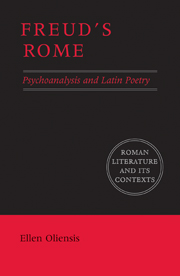3 - Variations on a phallic theme
Published online by Cambridge University Press: 05 June 2012
Summary
The previous chapter brought me to the verge; now I close my eyes and step right over, taking the plunge into one of the most embarrassing and rebarbative of psychoanalytic obsessions: the Freudian penis, the Lacanian phallus.
There is no way around the fact that this is a pivotal topic in classical psychoanalytic theory. For Freud, it is the penis that signposts the devious journey that arrives, with surprising frequency, and as if by design, at normative heterosexuality. Fear of losing it (“castration anxiety”) spurs the son to relinquish the mother; wanting it (“penis envy”) sets the girl on the winding path toward motherhood, which alone can abate her sense of privation. In one of Freud's everyday myths, the differentiating crisis is triggered by the sight of a different body, perceived as fearfully deficient or enviably furnished. Whereas the boy's reaction has to be activated by a threat of castration (it is only in tandem with this threat that the girl's body appears castrated, thereby furnishing ghastly proof that such threats are not always empty), the girl's is instantaneous: “she has seen it and knows that she is without it and wants to have it.” Though sometimes refusing the evidence of his eyes, the Freudian boy typically has the good sense to relinquish his mother in order to keep his penis. By contrast, the Freudian girl scarcely ever succeeds in recovering fully from her initial disappointment. And the consequences of this difference ramify far beyond individual sexual destinies.
Information
- Type
- Chapter
- Information
- Freud's RomePsychoanalysis and Latin Poetry, pp. 92 - 126Publisher: Cambridge University PressPrint publication year: 2009
